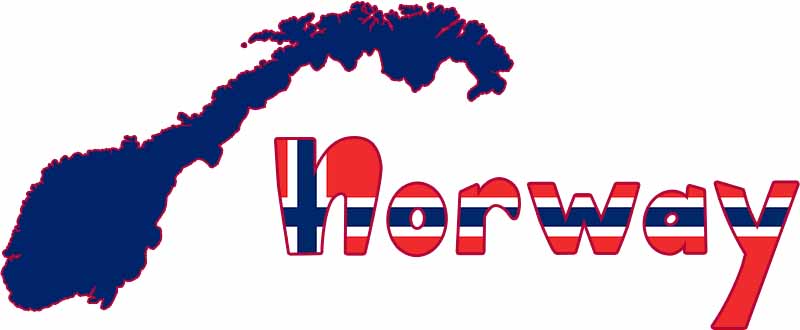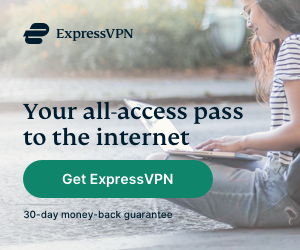Norway has long been a paragon of personal privacy. But look a little deeper and you’ll see that despite this, you still need a VPN in Norway.
After all, when it comes to the internet — and the government — there’s always more going on behind the scenes than you think.
Here are the top 10 reasons why all internet users in Norway should use a VPN.
Top 10 Reasons Why You Need a VPN While in Norway
1. Some Norwegian Politicians Want to Censor the Internet
The Christian People’s Party has quite a bit of sway in the Norwegian government.
But one stance of the party is particularly concerning for online privacy advocates. It wants to censor or ban all internet pornography.
This is a slippery slope: once a government censors pornography, it normalizes censorship in other areas as well. It paves the way for other, more damaging forms of censorship, such as banning political websites.
Getting a VPN before the censorship begins will keep you prepared for the worst. And in the event that Norway does censor the web, your VPN will let you keep accessing the sites you need.
2. Norway Is a Member of the Nine Eyes Surveillance Group
You’ve heard of Five Eyes, the shady surveillance alliance comprised of the US, the UK, Canada, Australia and New Zealand. These five countries swap intelligence and use advanced technology to monitor their citizens’ internet traffic.
But you may not have heard of Nine Eyes, though it’s just as concerning. Nine Eyes consists of the Five Eyes members plus Denmark, France, the Netherlands and Norway.
Though the core Five Eyes members no doubt carry out the bulk of the group’s surveillance, Norway’s inclusion is concerning.
Many of these surveillance activities are of questionable legality, including real-time web traffic monitoring, and it’s not clear how much Norway partakes in them.
Don’t leave yourself vulnerable to the risks posed by Nine Eyes. Encrypt your traffic with a VPN so no country, group or government can spy on it.
3. Norway Has Spied on the Internet Using NSA Technology
Norwegian taxpayers have spent over $33 million on a facility that, until recently, hardly anyone knew about. The VICTORY GARDEN station, about 40 miles northwest of Oslo, is an intelligence-gathering site built using NSA technology.
Yes, the agency that brought you such privacy-invading programs as PRISM and ECHELON has weaseled its way into Norway. And its impact hasn’t been pretty.
The Norwegian Broadcasting Corporation and the Intercept discovered that VICTORY GARDEN has been used to monitor emails sent by ordinary Norwegian citizens to international friends and family.
Basically: if your message leaves the country, the Norwegian government will be reading it.
We don’t know for sure what else the government is using VICTORY GARDEN to monitor. But if you use a VPN to encrypt your traffic, it won’t be able to read it, whatever it is.
4. There Are Signs that Norway Will Be Ramping Up its Surveillance
A crisis can really reveal one’s true colors, and Norway is an unfortunate example.
In response to the coronavirus crisis, the Norwegian government created a contact-tracing app to track the spread of the virus. The problem: the app was incredibly bad for privacy, using GPS to track users 24/7 in real time.
After Amnesty International called out the privacy invasion, the government took the app offline. But the fact that it ever went live at all suggests that Norway may be moving in a privacy-unfriendly direction.
Use a VPN to stay one step ahead and future-proof your privacy.
5. A VPN Can Unlock New International Streaming Content
If you’re used to watching Netflix in another country, you may be a little shocked when you try to load it up in Norway. Netflix’s Norwegian library is a lot smaller than other countries’ libraries thanks to licensing geo-restrictions.
But you can easily access international streaming libraries by changing your location with a VPN.
6. VPNs Protect Your Privacy When You’re Torrenting
Norway doesn’t generally prosecute people who download copyrighted material for personal use. But that doesn’t mean it’s safe to torrent: the country has no problem letting copyright trolls sue you for piracy.
In 2018, the Norwegian government gave copyright trolls the green light to sue nearly 22,000 Norwegians for torrenting copyrighted movies.
These trolls use IP addresses to track down torrenters and sue them. But if you change your IP address with a VPN, they’ll never be able to trace your torrenting back to you.
7. Your Data Will Remain Secure Once it Leaves Norway if You Use a VPN
Norway’s data protection laws are pretty user-friendly, but that’s not always the case in other countries. If you use websites based outside of the EU, your data won’t necessarily be treated with the same care it’s given in Norway.
So if you want to minimize your risk, use a VPN to encrypt your data. Encrypted data is much less likely to be misused — after all, it’s meaningless to anyone who doesn’t have the encryption key.
8. You Can Stay Safe on Public WiFi by Using a VPN
Almost every Norwegian uses the internet, but not all of them use it for good. Hackers are everywhere in Norway, and many of them stake out public WiFi networks looking for data to steal.
But if you encrypt your traffic with a VPN, hackers won’t be able to do anything with it. It’s a way to keep the convenience of public WiFi while leaving the risk behind.
9. VPNs Limit the Effectiveness of Invasive Web Trackers
Web trackers use your IP address to follow you around the internet, logging everything you search for or click on. They then sell those logs to advertisers who use the data to bombard you with ads.
Sick of these practices and of companies profiting from your data? Then use a VPN to change your IP address regularly and get the trackers off your trail for a while.
10. A VPN Lets You Unblock Websites at Work
Of course your boss would prefer that you only use your work WiFi for, well, work. But sometimes you need to (or want to) view a website at work… only to find that it’s blocked.
There’s an easy solution: use a VPN. Its encryption prevents your network filters from detecting the URLs you visit, and if it can’t detect them, it can’t block them.



